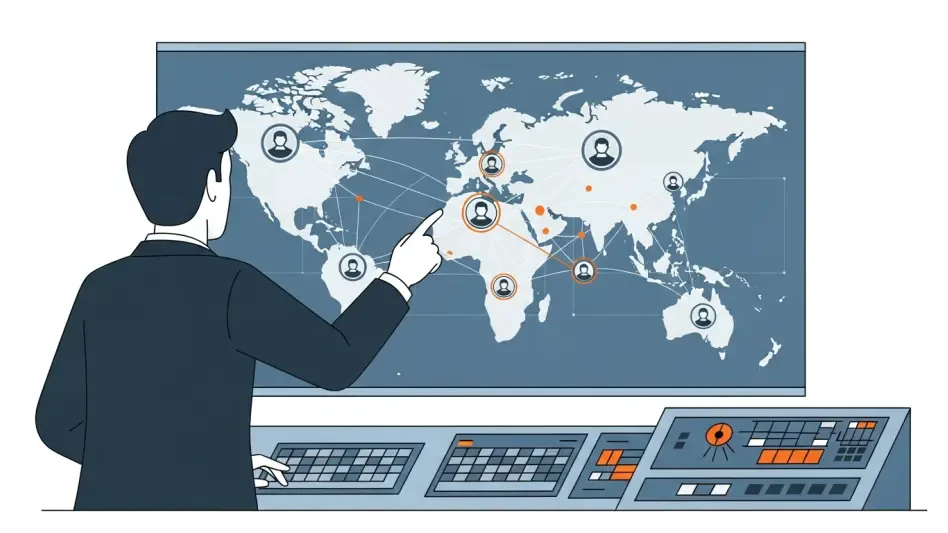In a world increasingly reliant on digital connectivity, the shadowy underbelly of cybercrime continues to exploit technology for nefarious purposes, often with devastating consequences for unsuspecting victims. A recent operation led by Europol, in collaboration with law enforcement agencies from Austria, Estonia, Latvia, and Finland, has struck a major blow against such illicit activities. On October 17, a sophisticated criminal network known by its codename was dismantled, revealing the alarming scale of telecommunications-related crimes enabled by an underground SIM-box service. This network provided cybercriminals worldwide with access to phone numbers from over 80 countries, facilitating fraud, phishing, extortion, and even more sinister activities like migrant smuggling. The operation not only exposed the depth of this criminal enterprise but also highlighted the urgent need for international cooperation to combat the evolving landscape of cyber threats.
Unraveling a Global Cybercrime Operation
Scope of the Illicit SIM Service
The criminal network at the heart of this operation offered a sprawling illicit SIM-box service that catered to a global clientele of cybercriminals. This service enabled the creation of an estimated 49 million fake online accounts, a staggering figure that underscores the sheer scale of deception involved. These accounts were instrumental in defrauding over 3,200 victims across multiple countries, with reported losses reaching millions of dollars. In Austria alone, authorities documented 1,700 cyber fraud cases resulting in losses of $5.2 million, while Latvia reported 1,500 cases with damages close to $490,000. The range of crimes facilitated by this network was vast, encompassing investment fraud, scams on online marketplaces, and other schemes designed to exploit trust in digital platforms. The ability to access phone numbers from numerous countries provided a veneer of legitimacy to these fraudulent activities, making it harder for victims to detect the deception until it was too late.
Details of the Coordinated Takedown
The operation to dismantle this network culminated in a major action day on October 10 in Latvia, where five Latvian nationals were among the seven individuals arrested. Law enforcement conducted 26 searches, uncovering a workspace filled with advanced computer hardware and thousands of SIM cards. Authorities seized critical infrastructure, including five servers and around 1,200 SIM-box devices that operated approximately 40,000 SIM cards, alongside hundreds of thousands of additional cards. Two websites offering the illegal service were shut down, effectively cutting off a key access point for cybercriminals. Financial assets were also targeted, with $502,600 in bank accounts and $333,000 in cryptocurrency frozen, while four luxury vehicles were confiscated. This meticulously coordinated effort, supported by Eurojust and the Shadowserver Foundation, demonstrated the power of international collaboration in disrupting the technological backbone of such criminal enterprises.
Implications and Future Challenges
Rising Threat of Cybercrime-as-a-Service
One of the most concerning revelations from this operation is the growing sophistication of cybercrime-as-a-service models. These models allow specialized criminal groups to provide tools and infrastructure, such as SIM-box services, to other malicious actors on a global scale. This trend transforms cybercrime into a highly organized, scalable business, where even those with limited technical expertise can engage in fraud and deception by leveraging pre-built systems. The dismantled network’s ability to support millions of fake accounts illustrates how such services amplify the reach and impact of criminal activities. Beyond financial losses, the misuse of mobile identity technologies poses risks to critical infrastructure and national security, as seen in similar cases elsewhere. This operation serves as a stark reminder that as technology advances, so too do the methods employed by those seeking to exploit it for illicit gain.
Need for Sustained Global Efforts
The success of this takedown underscores the critical importance of cross-border cooperation in addressing the multifaceted challenges posed by cybercrime. The involvement of a suspect with a history of arson and coercive financial crimes in Estonia further highlights the interconnected nature of criminal enterprises, where individuals often operate across multiple jurisdictions and crime types. International law enforcement agencies must continue to prioritize the sharing of intelligence and resources to track and apprehend key figures behind such networks. Looking ahead, there is a pressing need to develop robust strategies to counter the evolving tactics of cybercriminals, including enhanced regulations on mobile identity technologies and greater public awareness of digital fraud risks. The dismantling of this network marked a significant victory, as authorities disrupted a major hub of illicit activity and protected countless potential victims from future harm.








